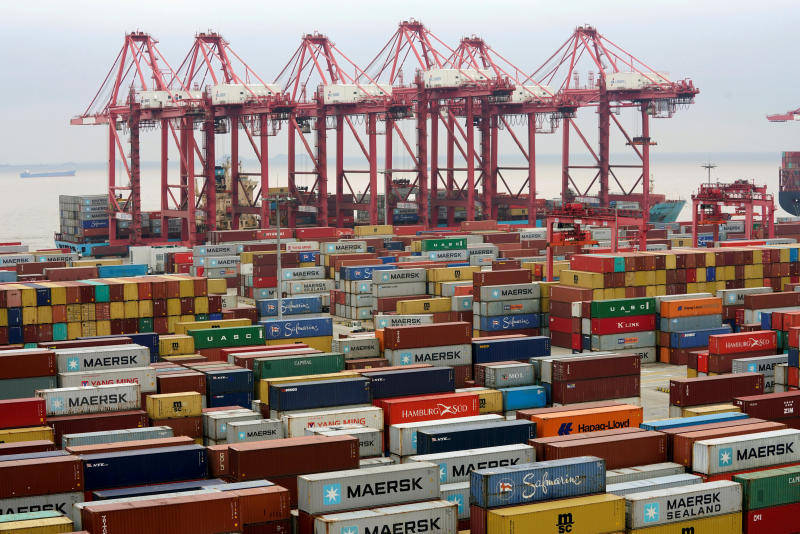China stands firm, seeks to reduce impact
Sign up now: Get insights on Asia's fast-moving developments

China has said it will keep hitting back at Washington as more tariffs are piled on Chinese imports.
PHOTO: REUTERS
BEIJING - The just-concluded low-level trade talks in Washington were not expected to make any breakthrough in the trade dispute between China and the United States, said analysts.
Instead, they were likely meant to establish a common road map for future negotiations, said Mr Rajiv Biswas, Asia-Pacific chief economist at IHS Markit consultancy.
Analysts said it is therefore not a surprise that the talks did not achieve anything concrete.
"Given the long break in bilateral trade negotiations amid the escalating US-China trade war, both sides may have wanted to have a more low-key approach to restarting trade talks," said Mr Biswas.
What is clear, however, is that neither side is ready to give in yet.
United States President Donald Trump on Monday said resolving the dispute will take time as "China's done too well for too long, and they've become spoilt".
China, for its part, has said it will keep hitting back at Washington as more tariffs are piled on Chinese imports.
"China doesn't wish to engage in a trade war, but we will resolutely respond to the unreasonable measures taken by the US," Finance Minister Liu Kun told Reuters on Thursday (Aug 23). "If the US persists with these measures, we will correspondingly take action to protect our interests."
OCBC Bank's economist Tommy Xie noted that China has toughened its tone since the Chinese leaders' retreat at the seaside resort Beidaihe in early August.
"Various signs show that its top leaders may have reached the consensus internally that compromise is not going to solve the problem," said Mr Xie.
Instead, China is looking at ways to mitigate the impact of US tariffs on its economy.
The world's two largest economies held three rounds of formal talks from May to June, but could not resolve their differences over trade.
The US went on to impose punitive tariffs of 25 per cent on US$50 billion (S$68 billion) worth of Chinese products in two rounds, in early July and on Thursday, with China retaliating with reciprocal levies.
The trade war could escalate further as the US is undergoing public hearings on another set of tariffs on US$200 billion worth of Chinese imports.
Mr Xie said China's gross domestic product (GDP) growth could be slashed by 0.5 percentage points if the US were to impose tariffs on US$250 billion worth of products from China.
To mitigate such an impact, China could boost domestic demand with fiscal policy moves such as an income tax cut, he added.
Mr Biswas noted that China is already taking some steps to boost credit growth for small to medium enterprises, as well as increased infrastructure spending.
"There is still some leeway to use short-term infrastructure spending measures to provide a boost to GDP growth," he said, adding that the Chinese government has a moderate level of total government debt to GDP.
Dr Guan Tao, senior research fellow at the China Finance 40 Forum think tank, said a key solution is to deepen China's reform and the opening up of its economy.
"If (our economy) is very healthy, no matter what others do, they cannot block China's development," he said.


